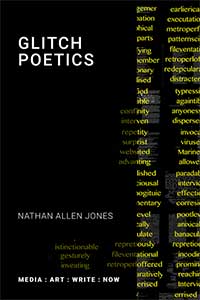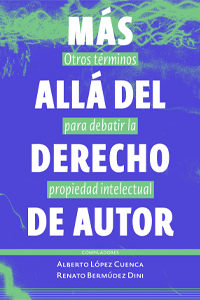This is an 'author's cut' of the first section of 'Defund Culture', which appeared in the Spring 2022 issue of the journal Radical Philosophy.
---

For more than a decade the British Conservative Party, supported by the country’s right-wing media, relied heavily on a hostility to one of the mainstays of the post-war liberal world order, the European Union, to help win elections and remain in power. Aware that it’s far easier to unite people as an imagined community around what they are not than what they are, they achieved this by linking the grievances of a number of different sections of society – about immigration, national sovereignty, the loss of secure jobs, the metropolitan liberal elite – at least enough to be able to form a government.
After Britain’s January 2020 withdrawal from the EU, however, Brussels and its professional class of political technocrats can no longer be blamed quite so convincingly for the UK’s problems. What we have seen since is the Conservative Party devoting more of its attention to the wider ‘culture war’ it began during the vote leave campaign of 2016. Research reveals that the total number of articles published in the UK press each year concentrating on the ‘existence or nature’ of the culture war increased from a mere 21 in 2015 to 534 in 2020. This was followed by another huge rise in 2021 to 1,470.
Yet this conflict is far from confined to the pages of newspapers and magazines. It’s also being conducted on the battlefield of the country’s elite institutions. Witness the reaction to:
- the National Trust heritage charity acknowledging in 2020 that almost a third of the stately homes it owns, including Winston Churchill’s country estate Chartwell, have links to slavery and colonialism. Sir John Hayes, a former minister and the founder and chair of the Common Sense Group of Conservative MPs, has gone so far as to tell the House of Commons that ‘defending our history and heritage is our era’s Battle of Britain’. (Subsequently, a group of ‘anti-woke’ insurgents called Restore Trust was established to fight this particular aspect of the culture war by seeking to have its candidates elected to the National Trust’s governing council.
- reports that Rule, Britannia! and Land of Hope and Glory were to be dropped from the BBC’s 2020 Last Night of the Proms (dubbed the ‘Black Lives Matter Proms’) as result of pressure from movements for racial justice because of their associations with colonialism and slavery. Oliver Dowden, then Secretary of State for Digital, Culture, Media and Sport, intervened to say he shared the ‘concerns of many about their potential removal’ and that he had raised the issue with the BBC. ‘Confident forward-looking nations don’t erase their history, they add to it’, he declared. Dowden, currently Co-chairman of the Conservative Party, has since doubled down on this idea, claiming in a 2022 speech to the Heritage Foundation thinktank in the US that a ‘West confident in its values would not be obsessing over pronouns or indeed seeking to decolonise mathematics’.
- the decolonisation agenda within the country’s museums and galleries. In 2021 Dowden was involved again, this time in the vetoing of Dr Aminul Hoque, a lecturer in the Educational Studies Department at Goldsmiths College, University of London, from being reappointed to serve a second term as a member of the board of trustees of the Royal Museums Greenwich because of his backing for decolonisation.
Declaring war on the ‘wokeism' that is held as leading to the removal of statues (such as that commemorating Bristol slaver Edward Colston) or to the renaming of buildings (including Edinburgh University’s David Hume Tower because of the philosopher’s writings on race), has several other advantages. It distracts from the UK Government’s disastrous handling of the coronavirus contagion and Omicron wave, as well as Afghanistan, Brexit, the Ukrainian refugee situation and the economy: rising energy prices, food, labour and petrol shortages, and the cost of living crisis. And that’s without even mentioning the revelations concerning cronyism, corruption and the Partygate scandal. The 24 February 2022 invasion of Ukraine by Russia and its domination of the news cycles saw the Conservatives calling something of a truce in the culture war. Yet, as with so much of what they do at the moment, this was less an indication of a change of ideological conviction on their part and more a matter of political expediency. As such, it was always going to be temporary – especially when Nigel Farage and his allies are in the process of opening a new post-Brexit front around net zero that is designed to oppose action on the climate emergency. Sure enough, at the Tory’s party’s 2022 spring conference the war in Ukraine was positioned as necessitating an end to criticism of British history and debates about statues: ‘we don’t need to be woke, we just want to be free’, prime minister Boris Johnson emphasised in his keynote speech.
The reason political outliers such as Farage are contributing to the culture war, even when they are not members of parliament themselves, is because doing so enables them to help shift what is considered to be politically impartial and ‘balanced’ a notch or two to the right. This is another of the culture war’s advantages for conservatives. The Department of Education’s new rules concerning the teaching of imperialism, racism and, indeed, the climate emergency in England’s schools provide further evidence of this rightward drift. But the culture war also helps to create an environment in which it is acceptable for the Government to reduce the amount of support it provides to those sectors that are liable to be critical, both of its socially conservative politics – on asylum, the right to protest, secrecy laws and so forth – and of democratic capitalism’s constitutive inequalities (in terms of class, race, gender, sexuality etc.). Public, local government and business investment all having fallen since 2008, many arts organisations have been left struggling to survive during the pandemic due to a lack of a public funding package. (Which isn’t to say the Conservatives can’t still get things badly wrong. A 2020 Government-backed advertising campaign encouraging ballerinas to retrain for jobs in cybersecurity had to be quickly withdrawn after it generated a barrage of protests.)

Nor has the antagonism toward those areas of society perceived as fostering critical thought and dissent been confined to the arts, heritage and media sectors. It is now a decade since Michael Gove, as education secretary, excluded the creative arts from the core school curriculum. A lot of institutions have subsequently scrapped their art, music and theatre programmes. At the same time, well-off private schools have been able to invest in substantial arts centres so their alumni can continue to lead the field.
Yet if the Tories are not committed to protecting the creative industries, they are in favour of introducing the teaching of Latin. In 2021 the Department of Education announced a £4m Scheme to do just that, with plans to roll it out across 40 schools as part of a four-year pilot programme for 11- to 16-year-olds, beginning in September 2022. It’s a prospect that returns us to an era when, as Richard Beard shows in Sad Little Men, his book about the institutions that shaped both Conservative prime ministers David Cameron and Boris Johnson, Britain’s private schools were quite explicit in placing greater emphasis on the ‘development of character’ than on the ‘acquisition of knowledge’. Traditionally, such schools taught very little history, geography or even science, focusing more on sport to exhaust and distract their pupils so they wouldn’t be tempted to have sex with one another. ‘Compliance was more important than critical thinking’, writes Beard. When it came to academic subjects these schools concentrated mainly on the classics and religion. Along with their nostalgic instinct to ‘hide in a glorified’ – and often fictitious – past, evident right down to their ‘almost accurate historical costumes’, and associated aversion to new ideas and to difficulty and complexity, this goes a long way toward explaining why so much culture in England, in particular, has tended to be rather safe, homogenous and anti-intellectual.
The withdrawal of support from the creative subjects by successive Conservative governments is also having an impact on universities, and specifically on what courses are available for students to take at which institutions. Again, arts and humanities education – including media studies, philosophy, history of art, music, dance and performing arts – can continue (in some form at least) at the kind of wealthy, ‘global-brand’ institution that admits a lot of private school pupils in a manner it cannot so easily at others. The result? Between 2009-10 and 2019-20 the number of university students enrolled in humanities courses in the UK declined by 18%.
In fact, universities are an explicit target in this culture war: for their supposed left-wing campus politics, ‘no platforming’ and ‘cancel culture’. (What’s more they’re a target despite research showing that ‘there’s not a great deal of awareness or particular focus among the UK public about universities being in the front line’ of the culture wars, or of being particularly left-wing.) Within this there has been open government hostility toward the arts and humanities due to their assumed teaching of ‘cultural Marxism’ and ‘critical race theory’, and ‘low value’ and ‘dead end’ degree courses. (Again, this is in spite – or is it because – of the fact that, across the West, younger people today are actually quite radical and left-wing.) Just as many cultural organisations and venues have suffered from a lack of financial aid during the pandemic, we now have the arts and humanities being deliberately defunded because they are not considered ‘strategic priorities’. According to the University and College Union, the cuts ‘halve the amount of money available for creative and arts subjects’ from the beginning of the 2021/22 academic year. ‘The reforms are part of government plans to prioritise funding for “high-value” courses like STEM and medicine.’
 Sunday, June 5, 2022 at 8:28PM
Sunday, June 5, 2022 at 8:28PM 
 Gary Hall | Comments Off |
Gary Hall | Comments Off | 






